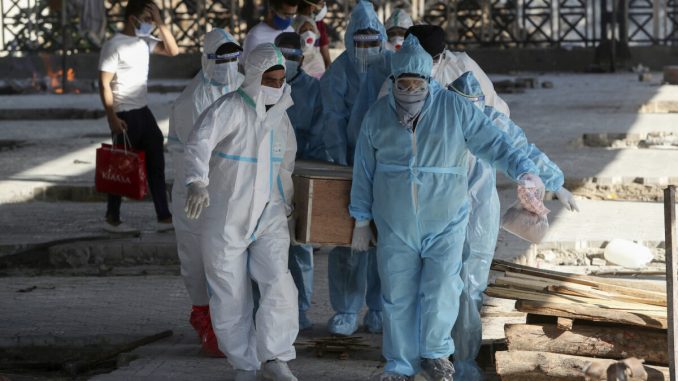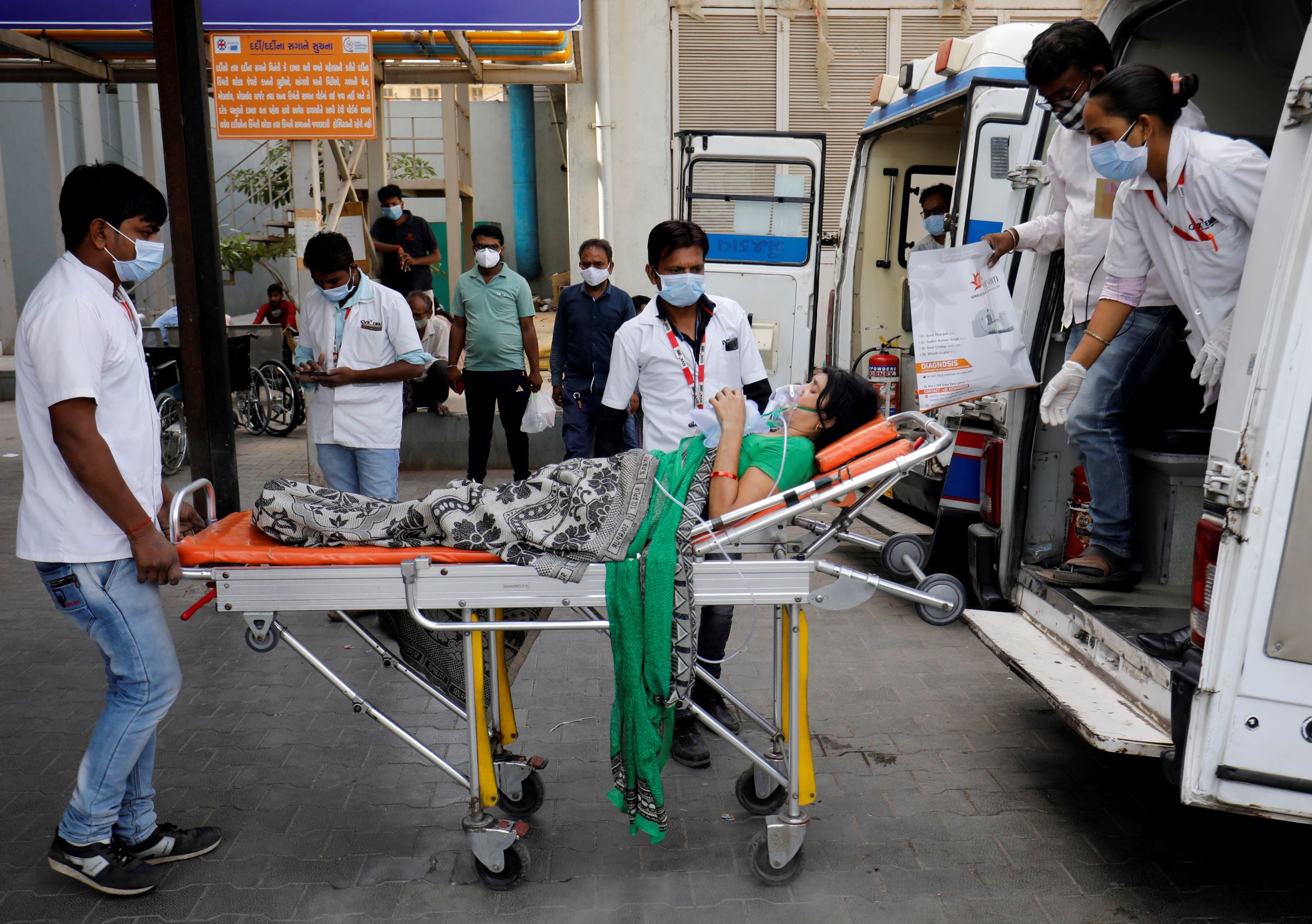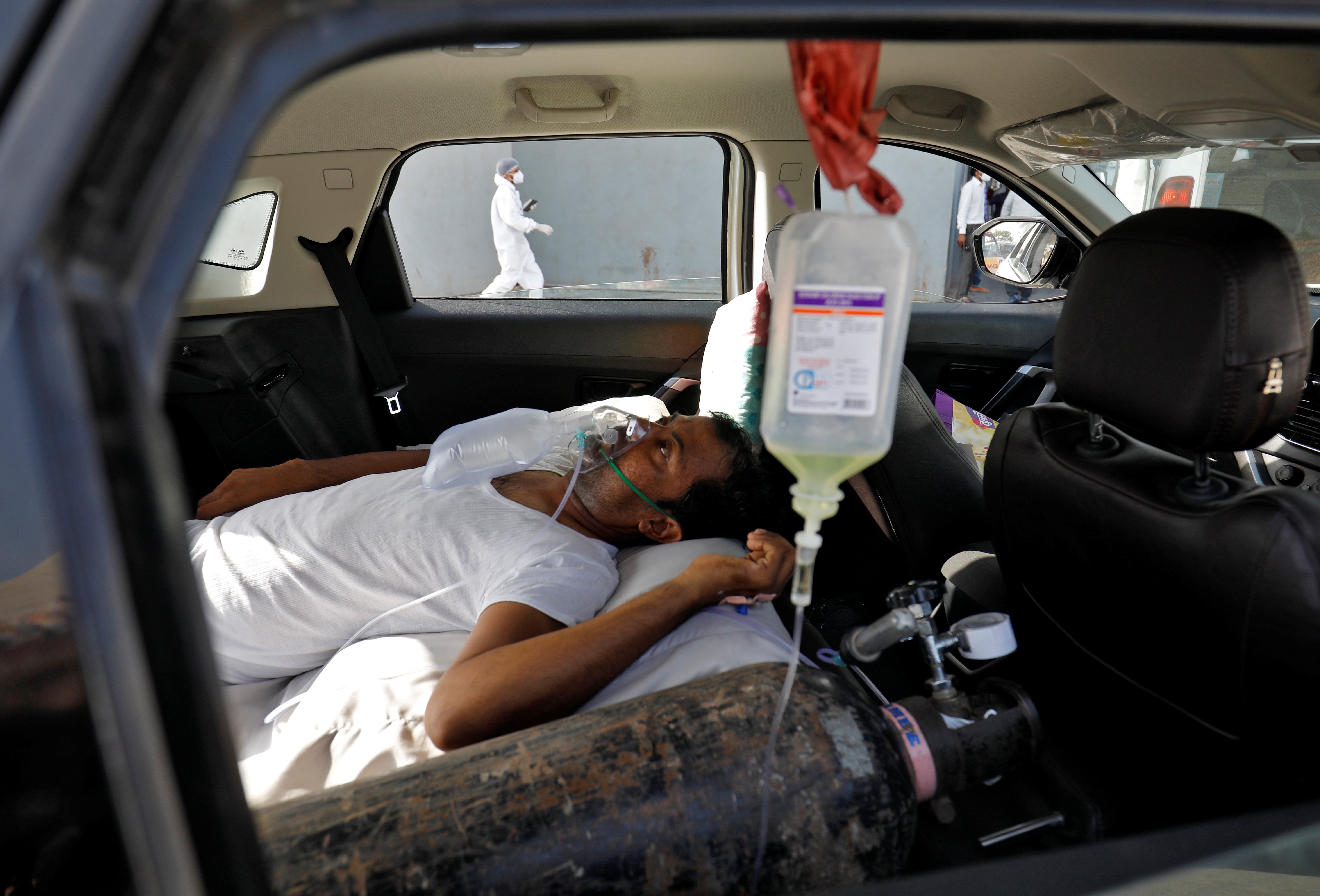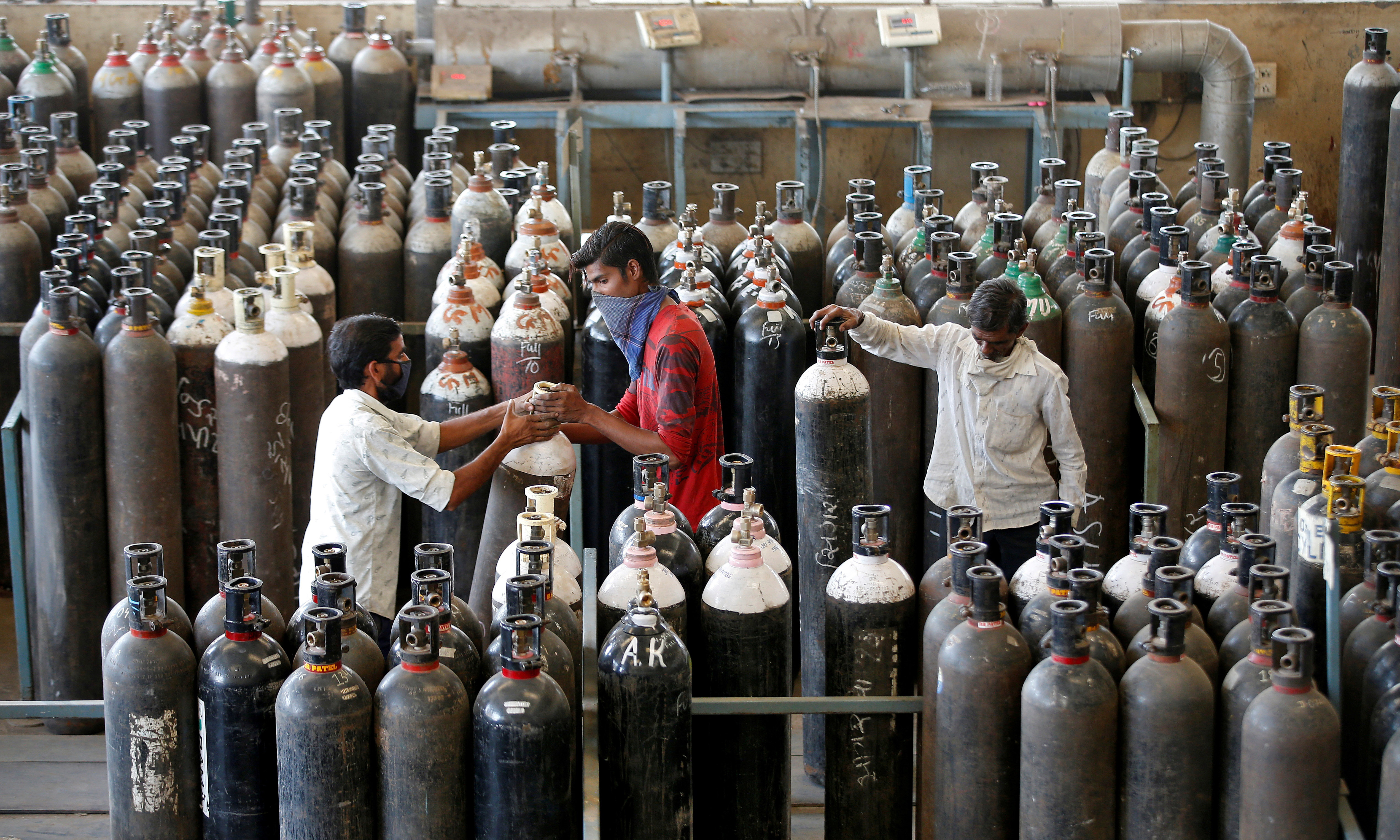
NEW DELHI—While experts are warning that a third wave is inevitable in India, a global healthcare executive who has authored a book on the pandemic told The Epoch Times that the current second wave is not unique to India. It’s happening in others parts of the world as well, but India’s unique set of problems are aggravating the situation.
“I would say the second wave happened all over the world. As the first wave in India was a few months delayed, I think the second wave is also few months delayed, but it happened faster,” Joe Chalil, a global healthcare executive and the author of “Beyond the COVID-19 Pandemic: Envisioning a Better World by Transforming the Future of Healthcare” told The Epoch Times over the phone.
“But it’s the same way which happened in the U.S., which happened in UK and Europe, France, Italy all over. So this is nothing new. This is to be expected. And I’m not sure this is the last wave,” said Chalil. The second waves already happened a few months ago in New York and Miami, he said, and “as we speak” it’s happening in other places of the world like Brazil.
Brazil, a country of just 214 million saw the second wave surge almost a month ahead of India and has recorded 414,645 deaths as of May 6 while India saw its deadliest record-breaking single-day surge of 412,262 infections on Thursday and its total death count as of the same day was 230,168.
“The problems in India might be a little bit unique because of the larger population,” said Chalil, a Florida-based Indian-American. “I agree that hindsight is 2020. Preparations should have helped India. But they did not prepare. I think they took it lightly.”
However, the case fatality ratio of deaths per 100,000 of the population of India is better compared to that of the United States, Brazil, and Mexico, he said.

“They believed some of the publications which came in international journals that the reason why even the first wave was not that bad in India; they were trying to find excuses or reasons for it, talking about the immunity of Indian people, and the BCG vaccinations and the malaria prophylaxis, all those things,” said Chalail.
BCG vaccination is against Tuberculosis and India had mass BCG vaccination drives to eradicate the disease while malaria prophylaxis involves protection against COVID believed to be provided by an anti-malarial drug that was widely used in the country to eradicate malaria, which was once the cause of the high mortality rate in the country.
After the pandemic started last year, a study by the Indian Council of Medical Research (ICMR) said the century-old BCG vaccine can help the elderly fight COVID, reported the Times of India.
Chalil said that after the first wave subsided, it’s likely that some of the administrators would have become relaxed in their preparation. “But there was no excuse for not stocking up on in PPPs [personal protective equipment], not stocking up on enough oxygen or medications because this was predicted to happen,” he said. However, the situation is so complex that one particular factor can’t take all the blame, he said.
“Because even imagine, like a metropolitan city in the U.S. like New York, where we spend at least $11,000 [over eight lakhs] per person, every year on healthcare expenses. Yeah, we ran out of ventilators. We didn’t have enough ICU beds available. We were having patients dying in nursing homes left and right. We were discharged, we were making mistakes,” he said.
Historically the second wave is deadly compared to the first wave and no one is prepared for it, according to Chalil who’s also the Chairman of the Complex Health Systems Advisory Board, College of Business and Entrepreneurship at Nova Southeastern University in Florida and a member of the Dr. Kiran C. Patel College of Allopathic Medicine (NSU MD) Executive Leadership Council.
“It’s like a world war. So you know, you don’t know how it’s gonna go, whether it’s going to be light or hard,” he said. “But yeah, I believe India’s health minister should take responsibility for lack of action,” said Chalil.

Reports About the Third Wave
The fourth wave has already hit some countries and this week Indian media has been replete with stories of what an inevitable third wave could likely mean for India. Chalil said the issue is not about a new wave hitting India but rather the entire world should be worried about if the currently available vaccines will work for the new mutants that define each new wave.
“On top of the second wave, versus the third wave which is coming a few months later, it’s a wake-up call for every country! What if the virus mutates, and our current vaccines—people taking Pfizer and every other vaccine and Sputnik or Chinese vaccine? What if it doesn’t work?” said Chalil, who’s an expert in U.S. health care policy.
Amidst speculation about another nationwide lockdown in the country, Chalil said the last year’s experience wasn’t good, and India should instead focus on containing the pandemic hotspots.
“So I wouldn’t recommend a nationwide shutdown, I would recommend what the British did; create hotspots, contain them for a couple of weeks until the current situation subsides because the pandemic’s second wave will go on for the next few weeks, and maybe by end of May it should be over,” he said.
“You will see fewer and fewer cases. But if you shut the whole country down, it won’t make it any faster, but the only difference is that it will kill the economy of India. And that will have a long-term impact on hunger and starvation and uplifting of the poor in the decades to come,” said Chalil.
India’s Drug and Cosmetic Law of 1940
Chalil said that a 71-year-old colonial period piece of legislation called the Drug and Cosmetic Law of 1940 is still functional in India and the country should modernize it to “give immediate conditional approval to COVID-19 drugs and vaccines.”
“They’re still sticking to that, if I want to export life-saving drugs to India, there are like seven forms to fill out and the guy has to have an import license to the warehouse and cold chain facilities. These are all British-made rules,” said Chalil adding that sometimes the whole process of import of life-saving drugs required under emergency may take “months, if not years.”
“So, there are several new therapeutics available worldwide, it’s coming up, there are so many phase three studies showing, 70 percent reduction in mortality, 70 percent or more benefit from ventilator-free survival,” he said adding the colonial period law would delay their import to India.
COVID causes cytokine storm or an immune system response or uncontrolled inflammation that causes people to die, but now there are small molecules like interleukin-6 (IL-6) inhibitors that are made in the United States and can reduce the severity of COVID and help a patient survive, said Chalil.
The American Food and Drug Administration has approved two IL-6 inhibitor drugs for managing patients with COVID-19 who have systemic inflammation, according to an official release. Chalil said there are several other drugs that are shown “effective in reducing mortality and ventilator-free survival.”
“Antiviral drugs and anti-inflammatory medicine from several manufacturers like Pfizer, GSK, and Regeneron are finishing pivotal studies. India should encourage local manufacturing of all these drugs and or import for immediate need,” he said. “Let these drugs come into India, give them conditional approval, and let’s save lives right now.”
During the deadly second surge, India faced a severe crunch of oxygen due to the breakdown of the supply chain and people had to scavenge for oxygen cylinders. Chalil recommended that India should plan better, and every hospital should be required to have an atmospheric oxygen separation plant.

He said “giving oxygen cylinders is not the solution,” the country should plan a long-term benefit of the change to its health system by overcoming the “nexus” preventing that from happening. “So it’s foolish if the whole world can do it, why can’t India!”
Chalil said the Indians should be careful and should wear their masks. A study conducted by Times of India early last month just ahead of the second wave showed that half of India wasn’t wearing masks and the other half was wearing them wrong.
“Be careful about the way they wear the mask, because they don’t mean to take risks, they believe that they’re younger and those are the people that spread the disease. If they don’t have to go out if they can work from home, please do,” said Chalil.





Be the first to comment